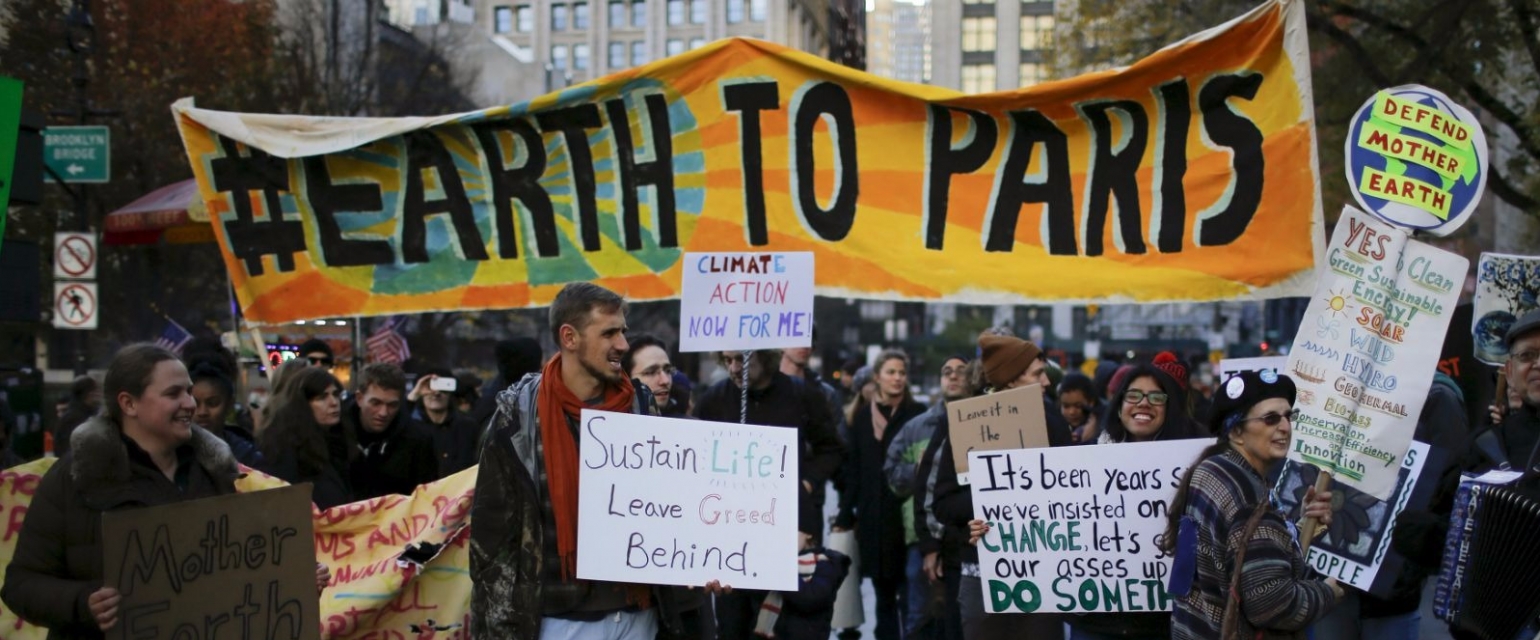

A number of major international summits were held last week, the most important ones being the United Nations Conference on Climate Change in Paris and the OSCE meeting in Belgrade. In Russia, however, all eyes were on President Vladimir Putin's annual address to the Federal Assembly, which traditionally contains important statements on the country's domestic and foreign policies.
New tensions in Russian-Turkish relations involving ISIS
News that could influence the future of Russian-Turkish relations continued to make headlines. Last week, the Ministry of Defense of the Russian Federation provided the global community with evidence of the Turkish leadership’s involvement in the oil trade with the Islamic State of Iraq and the Greater Syria (ISIS).
As might be expected, the U.S. Department of State challenged these claims, “We don’t believe there’s any truth to their claims that the Turkish government is somehow complicit in the illegal oil trade with ISIL. It’s just not true."
However, this information about a potential link between Turkey and ISIS was not news for world leaders. It has long been known that Turkey is trading with ISIS, and, in spite of showing outward support, Turkey's NATO allies are increasingly disappointed in the country's political course.
Climate change issues pushed aside in Paris
On Monday, Nov. 30, Paris hosted the 21st UN Conference on Climate Change, which was attended by 147 presidents and heads of state, including Russian President Vladimir Putin. Apart from the discussion of environmental issues, the Conference provided an opportunity for bilateral meetings where plenty of other issues were addressed.
Putin met again with Barack Obama, and they discussed Syria and Ukraine. The main point of contention between the two leaders is that Obama does not want the President of Syria, Bashar al-Assad, to be a part of the transition process in Syria. This scenario may leave Syria leaderless, but it does not guarantee that antagonistic opposition groups will be able to come to an agreement and maintain the integrity of the country.
The Russian leadership believes that urgent action is necessary. It is critical to compile a list of terrorist organizations and unite the global community behind stopping them, but it is also essential to figure out which groups can form a healthy opposition. According to the Russian President, who commented on his meeting with Obama, “They have an understanding of [their] goals."
Other meetings with Putin in Paris included those with the President of the People's Republic of China Xi Jinping, Chancellor of Germany Angela Merkel, and the President of the European Commission Jean-Claude Juncker. Then the Russian President met with Prime Minister of Israel Benjamin Netanyahu, the President of Peru Ollanta Humala, and the President of South Korea Park Geun-hye. The details of all these talks were not revealed to the press, but usually such short encounters are not for making decisions, but for asking questions.
Meetings with Asian leaders were a special item on Putin's agenda. The meeting with the President of the People's Republic of China Xi Jinping was not scheduled, but it could be inferred that urgent and important issues were discussed.
Continue reading at Russia Direct
The fact that there is a chance of talks being held at all can be considered a major success. Poroshenko previously refused to send delegates to Minsk to talk to the representatives of the unrecognized Donetsk and Lugansk people’s republics (DPR and LPR) in eastern Ukraine, with Russia and the OSCE acting as mediators. He preferred to hold negotiations in Geneva with Russia, using the United States and the European Union as mediators.
The results of the June 7 Turkish parliamentary elections clearly demonstrated that the Justice and Development Party (AKP) founded by Recep Erdogan runs out of support from the population. According to the interim results, the party received less than a half of votes. That will limit the Party’s ability to govern the state without paying attention to the other political forces’ viewpoints.
Certainly, the two are not on the same page in Syria and some other Middle Eastern matters; they have historically adversarial relations in the South Caucasus; and they have a conflicting modern record of Turkish support for Islamist and nationalist movements in the North Caucasus. But be it bilateral trade relations or pipeline geopolitics, instead of keeping in line with its NATO allies Turkey is more savvy in following its own national interests than many Western diplomats and analysts would like to think.
It seems to me that George Friedman’s geopolitical doctrine simplifies both the international reality and the liberal ideas of the American mainstream. Acceptance of the reality of the existing balance of powers, aspiration for preserving stability and guidance by the international law – these are the key ingredients in the realist policies recipe that the US still fail to manage.